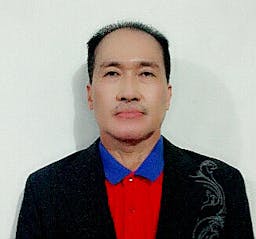Filipino Women in High Places despite Glass-Ceiling: Original Research Evidence
May 28, 2019
First story
After Philippine President Benigno Simeon C. Aquino III delivered his final state-of-the-nation address in July 2015, Philippine Senator and likely 2016 Presidentiable Grace L. Poe, had this to say in an interview, “All of the important and key [officials in his administration] who come out with tough decisions are women. So I am grateful to the President for seeing the potential and courage of a woman.”
Senator Poe’s remark reflects incontrovertible evidence presented by an NBC Universal-sponsored study on the modern Asian woman, “The high-heeled warriors.” This research notes that Southeast Asian women account for 32 percent of senior management roles, easily surpassing the 21-percent global share. Asian women’s prominent status extends to the home where 31 percent of them are chief income earners and heads of household.
Remarkably, the NBC findings also show that Filipino women who are in senior management roles (39 percent) outshine American women in that aspect (only 17 percent). Reinforcing this asset are the educational accomplishments of Filipino women, 85 percent of whom hold undergraduate or graduate school diplomas. The Southeast Asian average of 73 percent pales in comparison.
Current research and political leaders’ keen appreciation of Filipino women’s distinguished contributions to society are resoundingly echoed by my groundbreaking primary research of 620 Filipino women which yielded a 95-percent confidence level in the results with a margin of error of 5 points.
In this pioneering primary research, I hypothesized that Filipino women, mired in a 51-percent self-reported poverty rate, are burdened by feelings of personal powerlessness or the belief that human beings are helpless victims of fate and uncontrollable external forces such as luck and random events.
Employing a quantitative causal model, I extended this basic hypothesis with the proposition that powerlessness generates sequelae of crippling perceptions such as low self-esteem, low expectations of success in personal ventures, and a weak propensity for self-improvement.
Much to my delight and pride, I found that despite the overwhelming specter of impoverishment, Filipino women unequivocably displayed, instead of powerlessness, strong perceptions of self-efficacy or personal control, conceptualized as the perception that inherent ability and individual effort determine the consequences of one’s actions.
Such high levels of personal control generated among Filipino women a causal chain of elevated self-esteem or self-worth, a pronounced propensity for self-improvement, albeit relatively low success expectations.
Fortunately, my account does not end here with an anti-climactic note because my research further unearthed the reality that potential powerlessness, as a likely consequence of poverty, was effectively countered by Filipino women’s strong achievement ethic as measured by an original scale tapping respondents’ valuation of and regard for merit- and effort-based accomplishments.
Moreover, the debilitating effects of powerlessness were overshadowed by Filipino women’s high educational attainment, evidenced by a higher percentage of baccalaureate and graduate school degrees compared to that of their male counterparts.
Similarly, also compensating for the paralysis of powerlessness was the presence of a nurturing and supportive kinship system composed of the nuclear family, an ever-present extended family, and an extensive “adopted kin” network of peers, colleagues, and intimate lifelong friends.
Even Filipino women’s low success expectations were mitigated by an unwavering achievement ethic transformed into inspired action, commendable educational credentials, and an all-pervasive, protective mantle provided by overarching and highly influential support groups.
Filipinos generally enshrine women on a pedestal with the concomitant awe, deep admiration, respect, and caring. With Filipino women working as partners with the menfolk, there is absolutely no reason why the Philippines cannot soon achieve a developed-country status, a belief widely held by 80 percent of the Filipino people.
All that is needed is for the Philippines to get its act together and start posthaste to subsume personal interest to the common good, eschew mediocrity and pettiness in the grassroots and high places, but most importantly, circumspectly elect leaders with inspired, vibrant, and inclusive national and global visions.
These visions must be crowned with an empathetic, compassionate heart beating to the same drum of the powerless and the voiceless, open to novel paradigmatic-shift perspectives, courageous and relentless in stewarding a distinguished and model nation where the good of all, including those of the least of the brethren and the disadvantaged, trump uncontrollablyescalating personal ambition and conscience-deprived egocentric materialism.




